VIPsight - August 2011
COMPANIES
Shareholders approve stock-exchange merger
 After NYSE Euronext shareholders gave the merger into the largest stock-market operator worldwide their imprimatur in early July, with an approval rate of 96 per cent, a week later more than 80 percent of Deutsche Börse’s shareholders exchanged their shares for the securities of Alpha Beta Netherland Holding, set up specially for the merger. Thus all of the conditions for the merger on the shareholder side are in place. The Deutsche Börse share was replaced in the Dax on 20 July by the new Alpha Beta Holding one, with a new security code number but still under the Deutsche Börse name. Since not all Deutsche Börse shares were exchanged, the number of units is reduced. At the same time the free-float rate was lowered to 77.83 percent. Deutsche Börse shareholders will hold 60 percent of the new company after the completion of the action. While NYSE CEO Duncan Niederauer will head the company’s business, Deutsche-Börse chief Reto Francioni will chair the supervisory board. The deal has a value of 6.52 billion euros. However, various authorities still have to approve the merger. This may take until 2012. The EU Commission is to indicate by 4 August whether not they accept the deal.
After NYSE Euronext shareholders gave the merger into the largest stock-market operator worldwide their imprimatur in early July, with an approval rate of 96 per cent, a week later more than 80 percent of Deutsche Börse’s shareholders exchanged their shares for the securities of Alpha Beta Netherland Holding, set up specially for the merger. Thus all of the conditions for the merger on the shareholder side are in place. The Deutsche Börse share was replaced in the Dax on 20 July by the new Alpha Beta Holding one, with a new security code number but still under the Deutsche Börse name. Since not all Deutsche Börse shares were exchanged, the number of units is reduced. At the same time the free-float rate was lowered to 77.83 percent. Deutsche Börse shareholders will hold 60 percent of the new company after the completion of the action. While NYSE CEO Duncan Niederauer will head the company’s business, Deutsche-Börse chief Reto Francioni will chair the supervisory board. The deal has a value of 6.52 billion euros. However, various authorities still have to approve the merger. This may take until 2012. The EU Commission is to indicate by 4 August whether not they accept the deal.
Vossloh has new major shareholder
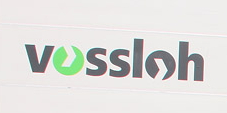 He sees his investment as long-term and strategic, said Heinz Hermann Thiele at the end of July. But he would not influence the composition of the supervisory board or management or change the dividend policy, the billionaire, who already owns brake manufacturer Knorr-Bremse, stated. Thiele had expanded his commitment to the Vossloh rail technology group in spring to over five percent, and announced plans to expand his share further. In July Thiele took advantage of a Vossloh stock price slippage: the company was forced by delayed operations in China and Russia to reduce its forecasts for 2011. By the end of July Thiele finally held 15.29 percent and was catching up on the Vossloh family, with its 31 percent stake in the Sauerland company. Observers now speculate as to whether Thiele might be planning a merger of Vossloh with Knorr-Bremse, since both companies are engaged in the railroad business. However, there are no real overlaps.
He sees his investment as long-term and strategic, said Heinz Hermann Thiele at the end of July. But he would not influence the composition of the supervisory board or management or change the dividend policy, the billionaire, who already owns brake manufacturer Knorr-Bremse, stated. Thiele had expanded his commitment to the Vossloh rail technology group in spring to over five percent, and announced plans to expand his share further. In July Thiele took advantage of a Vossloh stock price slippage: the company was forced by delayed operations in China and Russia to reduce its forecasts for 2011. By the end of July Thiele finally held 15.29 percent and was catching up on the Vossloh family, with its 31 percent stake in the Sauerland company. Observers now speculate as to whether Thiele might be planning a merger of Vossloh with Knorr-Bremse, since both companies are engaged in the railroad business. However, there are no real overlaps.
VW has majority at MAN
 Even at the end of June EU antitrust prevented VW from putting three of its own candidates on truckmaker MAN’s supervisory board before acquiring a majority stake under company law. The sticking point here was that Martin Winterkorn, Hans Dieter Poetsch and Jochem Heizmann already oversee VW subsidiary Scania. After the Wolfsburgers in May passed the 30 percent limit at the Munich DAX company, a public offer followed. VW offered MAN shareholders €95 per ordinary share and €59.90 per preference share. When the MAN price temporarily fell below the offer price, acceptance soared. 35.8 million common and 0.16 million preferred shares changed hands. With 55.9 percent, the actual goal of a 35 to 40 percent holding was far exceeded, and VW had to dig into its pockets for an extra €3.4 billion. With the majority that VW now holds in MAN, the Munich firm will now be integrated into the VW group and there merged with Scandinavian truck subsidiary Scania in one holding company. VW expects synergies of up to €200 million from common purchasing alone, as well as putting a spoke in the wheel of the German market leader in the truck business, Daimler. Analysts expect that VW could expand its share of MAN to 75 to 100 percent in the medium term. A separate stock-exchange listing for MAN in the Dax is thus coming to an end. The VW-MAN alliance is currently still subject to regulatory approval.
Even at the end of June EU antitrust prevented VW from putting three of its own candidates on truckmaker MAN’s supervisory board before acquiring a majority stake under company law. The sticking point here was that Martin Winterkorn, Hans Dieter Poetsch and Jochem Heizmann already oversee VW subsidiary Scania. After the Wolfsburgers in May passed the 30 percent limit at the Munich DAX company, a public offer followed. VW offered MAN shareholders €95 per ordinary share and €59.90 per preference share. When the MAN price temporarily fell below the offer price, acceptance soared. 35.8 million common and 0.16 million preferred shares changed hands. With 55.9 percent, the actual goal of a 35 to 40 percent holding was far exceeded, and VW had to dig into its pockets for an extra €3.4 billion. With the majority that VW now holds in MAN, the Munich firm will now be integrated into the VW group and there merged with Scandinavian truck subsidiary Scania in one holding company. VW expects synergies of up to €200 million from common purchasing alone, as well as putting a spoke in the wheel of the German market leader in the truck business, Daimler. Analysts expect that VW could expand its share of MAN to 75 to 100 percent in the medium term. A separate stock-exchange listing for MAN in the Dax is thus coming to an end. The VW-MAN alliance is currently still subject to regulatory approval.
VW consolidates Suzuki
What is a technical balance-sheet need for the Wolfsburgers is a broken agreement for Japanese carmaker Suzuki. The background to the latest “cultural misunderstanding” - as VW puts it - was that the involvement in Suzuki had been consolidated in VW’s annual report. Suzuki would therefore, contrary to agreement, be considered as part of the Volkswagen Group, on which Volkswagen could exert financial and operational impact, complained Suzuki. In 2009, Volkswagen acquired a 19.9 percent or €1.7 billion share in the fourth-largest Japanese automaker. As part of a cross-ownership, Suzuki bought an €850 million stake in the largest European manufacturer. While Wolfsburg hopes through Suzuki to gain entry into the small-car segment and the lucrative Indian market, the Japanese are looking to the collaboration for access to engine technologies. Suzuki now wants the criss-cross holdings put back to zero.
Major shareholder sells K+S shares
 Andrei Melnichenko has reduced his involvement in K+S to 9.88 percent, to raise funds for the development of his own potash production. In September 2010, the share of the Russian multi-billionaire, who runs his participation in the Kassel DAX Group through Meritus Trust, stood at 14.9 percent. Shortly thereafter in October 2010, talks on the joint development of a potash project in the Urals region of Perm were terminated unilaterally by EuroChem. The Russian producer of nitrogen and phosphate fertilizers also belongs, among others, to the anchor shareholder’s empire. To develop the deposit alone, the Russians now need the money from the sale of the K+S shares. It was only in March that the former parent company, BASF, had to drop out.
Andrei Melnichenko has reduced his involvement in K+S to 9.88 percent, to raise funds for the development of his own potash production. In September 2010, the share of the Russian multi-billionaire, who runs his participation in the Kassel DAX Group through Meritus Trust, stood at 14.9 percent. Shortly thereafter in October 2010, talks on the joint development of a potash project in the Urals region of Perm were terminated unilaterally by EuroChem. The Russian producer of nitrogen and phosphate fertilizers also belongs, among others, to the anchor shareholder’s empire. To develop the deposit alone, the Russians now need the money from the sale of the K+S shares. It was only in March that the former parent company, BASF, had to drop out.
Terex holds 82 percent of Demag Cranes
 After the extended acceptance period expired on 19 July at midnight, Terex holds 81.83 percent of the share capital of Demag Cranes. In the second period, the Americans were tendered a further 9.02 percent of the shares, as is evident from the electronic Federal Gazette. At the end of the regular acceptance period, the U.S. industrial group had held 72.81 percent in the Düsseldorfers. Since the construction machinery manufacturer’s bid was thus successful, according to the German Takeover Act another two-week offering period started, in which hitherto undecided shareholders could sell their papers on the given conditions.
After the extended acceptance period expired on 19 July at midnight, Terex holds 81.83 percent of the share capital of Demag Cranes. In the second period, the Americans were tendered a further 9.02 percent of the shares, as is evident from the electronic Federal Gazette. At the end of the regular acceptance period, the U.S. industrial group had held 72.81 percent in the Düsseldorfers. Since the construction machinery manufacturer’s bid was thus successful, according to the German Takeover Act another two-week offering period started, in which hitherto undecided shareholders could sell their papers on the given conditions.
RHJ wants BHF Bank
The Deutsche Bank is, it claims, currently in exclusive negotiations with the Belgian financial investor RHJ International for the purchase of BHF Bank. The institution has belonged to Deutsche Bank since the 2009 takeover of Sal. Oppenheim, but never counted as a strategic core business. As a possible purchase price, €500 million has been mentioned. According to analysts, the price would then be below the book value of €550 million. RHJ International also includes the former Commerzbank subsidiary Kleinwort Benson. Their operations in Great Britain, Ireland and the Channel Islands, as well as the capital-markets business, will be expanded after a possible takeover. Only in April sales negotiations with the Luxembourg LGT Bank failed in consequence of a veto by the Federal Financial Supervisory Authority (BaFin).
Buhlmann's Corner
Leaky Umbrellas
 Christine Lagarde, the head of the IMF world bailout umbrella, has got stuck. At the start of an official investigation for breach of trust a Prussian official would have resorted to the gun, or at least a duelling pistol. A rudderless Europe takes shelter under its own umbrella, although top European José Manuel Barroso rates it as faulty after just two weeks. Presumably he was just off for a fortnight’s holiday and had no smarter way to tell his colleagues something.
Christine Lagarde, the head of the IMF world bailout umbrella, has got stuck. At the start of an official investigation for breach of trust a Prussian official would have resorted to the gun, or at least a duelling pistol. A rudderless Europe takes shelter under its own umbrella, although top European José Manuel Barroso rates it as faulty after just two weeks. Presumably he was just off for a fortnight’s holiday and had no smarter way to tell his colleagues something.
They pervert the financial crisis into a holiday crisis and fail to see that in fact it was and is a crisis of confidence. Anyone looking at the Websites of the two Spanish IPOs Bankia and Banca Cívica is bound to wonder at the childish respect one pays investors there! VIP wants to change that: for women and for the rest of the world, there should be voting receipts from the AGM, and agenda changes like the recent ones by Ferdinand Piëch should be immediately available to the female voters and their male counterparts. Then it should be equally clear that, with subtle legal practices, 150 million euros of market capitalization were cut out of the Vodafone AGM last month – VIP was to represent two shareholders there, but that failed because the shareholder’s will of registered shareholder State Street was not implemented, or in such a way that our representative was sent home with his 150 million euros by the issuer’s service provider.
Unless that changes, we’ll be like the Italians. They send their prosecutors to Standard & Poor’s to investigate whether there has been profiteering from investments here because of certain statements. The assertive Munich prosecutors also currently have that on their table: they think the ratings and opinion people were the profiteers.
Not that the banks are any better. Barclay’s economist says in a television interview that the banks now expect a debt-reducing contribution from the State – although it was they, the banks, who took the biggest mouthful out of the liability and debt bottle. What the commentators forget is that it was only 40 months ago that it was the end of the world when a CEO could not move straight to the Supervisory Board chairmanship. Now even DSW people lament that it is regrettable to have to forego the cooperation of Wenning, Hambrecht & Co. for 24 months (even though their boss is at Weber-Rey beavering away at the Code). And today at the Deutsche Bank commentators see it as the Decline of the West if a cooling-off period is dispensed with – although there is nothing worse than when two alpha animals draw the same ox carts and grain after grain falls off the wagon. In their view of the world beyond the Main, there was only ever Josef Ackermann, whom Alfred Herrhausen begat.
ACTIONS CORNER
 Cropscience has according to its own account settled out of court with the lawyers for the growers of U.S. long-grain rice, in the legal dispute over genetically modified rice in the U.S. As the Bayer subgroup stated, the farmers concerned will be paid a total amount of up to 750 million U.S. dollars (just under 520 million euros) to settle the compensation claims. All U.S. farmers who grew long-grain rice in the period from 2006 to 2010 can take part in the program. The negotiated settlement will only be valid if the farmers who accept it account for at least 85 percent of the acreage of long-grain rice in the U.S.
Cropscience has according to its own account settled out of court with the lawyers for the growers of U.S. long-grain rice, in the legal dispute over genetically modified rice in the U.S. As the Bayer subgroup stated, the farmers concerned will be paid a total amount of up to 750 million U.S. dollars (just under 520 million euros) to settle the compensation claims. All U.S. farmers who grew long-grain rice in the period from 2006 to 2010 can take part in the program. The negotiated settlement will only be valid if the farmers who accept it account for at least 85 percent of the acreage of long-grain rice in the U.S.
 The BASF Group now need not pay an antitrust fine in the amount of 68.4 million euros imposed by the EU Commission in 2009, due to lapse of time. At the end of March in a suit the European Court had defined fundamental guidelines for the prescription, which is why the EU authority itself dispensed with a continuation of the case. Ciba and Elementis therefore had to pay no fines for participation in a cartel for so-called heat stabilizers, the Commission stated on 4 July in Brussels. The Commission considers that the BASF subsidiary and its British competitor agreed prices and allocated customers and markets among themselves, but Ciba was involved only up to1998.
The BASF Group now need not pay an antitrust fine in the amount of 68.4 million euros imposed by the EU Commission in 2009, due to lapse of time. At the end of March in a suit the European Court had defined fundamental guidelines for the prescription, which is why the EU authority itself dispensed with a continuation of the case. Ciba and Elementis therefore had to pay no fines for participation in a cartel for so-called heat stabilizers, the Commission stated on 4 July in Brussels. The Commission considers that the BASF subsidiary and its British competitor agreed prices and allocated customers and markets among themselves, but Ciba was involved only up to1998.
The Frankfurt Higher Regional Court has declared some of the decisions of the 2009 AGM null and void, as Deutsche Bank and Leo Kirch confirmed before his death on 5 July. According to information from a Kirch spokesman, the court criticized formal errors in the invitation among other things, reports Reuters. The ruling applies to the discharge to the Executive and Supervisory Boards and capital decisions of the shareholder’s meeting. In the Deutsche Bank’s opinion, however, the decision has no practical effect because the capital measures sanctioned at the AGM have already been legally registered, says the news agency.
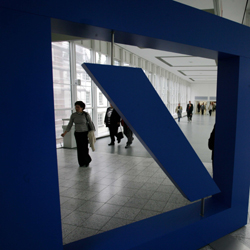 In the legal battle between Leo Kirch and Deutsche Bank, the bank has won a partial victory. On 19 July the Federal Court of Justice (BGH) ruled on a complaint filed by the late media entrepreneur, seeking in conjunction with four other plaintiffs to overturn the decisions of the bank’s annual general meeting in May 2008. Incorrect information on an invitation to the AGM, which “affected only the mode of participation and voting,” did not lead to the nullity of all decisions, said the BGH. Thus Supervisory Board Chairman Clemens Börsig remains in office.
In the legal battle between Leo Kirch and Deutsche Bank, the bank has won a partial victory. On 19 July the Federal Court of Justice (BGH) ruled on a complaint filed by the late media entrepreneur, seeking in conjunction with four other plaintiffs to overturn the decisions of the bank’s annual general meeting in May 2008. Incorrect information on an invitation to the AGM, which “affected only the mode of participation and voting,” did not lead to the nullity of all decisions, said the BGH. Thus Supervisory Board Chairman Clemens Börsig remains in office.
In the dispute with the United States about improper mortgage transactions by MortgageIT, the Deutsche Bank has gone on the offensive in court. The bank has now officially applied to a New York court to dismiss the U.S. government’s lawsuit, potentially worth billions. The government had accused the bank and its former real-estate subsidiary of having fraudulently accessed a government program that underwrote mortgages. Andrew Levander, attorney from the law firm Dechert, described the action as “fundamentally flawed”; Germany’s largest financial institution had taken over the property financier shortly before the company ceased trading, is the argument.
On 13 July Dexia sued Deutsche Bank before the Supreme Court of the State of New York for fraud in connection with a more than one-billion-dollar purchase of mortgage securities. Bank spokeswoman Renee Calabro said the complaint was totally unfounded. According to the application, the German bank had sold mortgage securities to the financial-services provider, although they knew that the home loans contained in them were of poor quality.
The Deutsche Bank is striving through out-of-court settlements to resolve pending cases from CMS credit ladder swaps it had sold. The bank was checking the applicability of the decision of the Bundesgerichtshof (BGH) to pending proceedings, it declared. In March, the BGH had ruled against the bank in a trial about this product. The bank had reached settlements in some cases; however, only in instances of the same type of derivatives. In addition, there was a growing number of complaints from retail investors, who had purchased similar products and want to use the Supreme Court ruling for themselves.
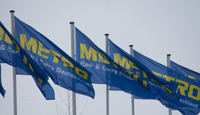 In the dispute among shareholders of Media-Saturn-Holding, METRO has had a first defeat in court. The Ingolstadt District Court stated in an interim decision that the advisory panel founded in March at the request of the majority shareholder would probably have to take decisions with a majority of more than 80 percent. The retail giant wants to trim the veto of the former owners and make important decisions in the future by a simple majority in the newly established advisory panel. The court adjourned its decision to 11 October.
In the dispute among shareholders of Media-Saturn-Holding, METRO has had a first defeat in court. The Ingolstadt District Court stated in an interim decision that the advisory panel founded in March at the request of the majority shareholder would probably have to take decisions with a majority of more than 80 percent. The retail giant wants to trim the veto of the former owners and make important decisions in the future by a simple majority in the newly established advisory panel. The court adjourned its decision to 11 October.
Heinz-Joachim Neubürger expects a suspension of investigations. As part of a bribery scandal the former Siemens chief financial officer was involved in the biggest corruption scandal in German economic history. Now, the proceedings against him are to be set aside, against contributions totalling 400,000 euros to charities. Neubürger would accept the investigators’ offer, his lawyers said. The case against him for tax evasion on behalf of Siemens would then be suspended, but not the claim for damages of €15 million.
ThyssenKrupp is to pay 160 million euros less than decided in 2007 by the European Commission. The European Court of Justice ruled on 13 July that only a penalty of 320 million euros was appropriate instead of the 480 million euros originally imposed for illegal collusion with its competitors. According to the judge, the EU Commission made a mistake in calculating the amount of the fine. The breach of EU law could not be seen as a repeat offence by the same company. In the former decision the group had been wrongly classified as a repeat offender, so that the fine had been increased by 50 percent.
AGM Dates
| Company | Event | Date | Time | Place | Address | Published on |
| TecDAX | ||||||
| Roth & Rau | ord. AGM | 26.08.2011 | 10:00 | 09337 Hohenstein-Ernstthal | An der Baumschule 6-8 | 15.07.2011 |
| The Agenda for the ordinary AGM of Roth & Rau AG starts with the usual items, like presentation of annual accounts and discharge to the company bodies. Elections to the Supervisory Board are to be held. | ||||||
| centrotherm | ord. AGM | 18.08.2011 | 09:00 | 89073 Ulm | Böfinger Str. 50, Messe Ulm, Donausaal | 08.07.2011 |
| The Agenda for the ordinary AGM of centrotherm photovoltaics AG starts with the usual items, like presentation of annual accounts and discharge to the company bodies. centrotherm photovoltaics AG earned balance-sheet profits of €75.14m last business year. Of the profits, €14.81m is to be paid out as dividend and €60.33m carried forward to a new account. A resolution on non-disclosure of executive pay is to be taken. The existing Authorized Capital I is to be replaced by a new one of €2.84m. | ||||||
Politics
The banks save the Euro
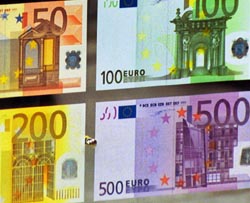 Now that the rescue of Greece has taken concrete forms, it is becoming apparent that the two major German banks, Deutsche and Commerzbank, will participate in the rescheduling action. While public aid from the European rescue fund EFSF and the International Monetary Fund (IMF) will amount to 109 billion euros, the European financial sector is to contribute a total of around 50 billion euros to the rescue package in the first step to 2014, by exchanging Greek government bonds for new securities with a longer term and putting up with markdowns. The contribution of German banks and insurers is likely to be around 8 billion euros. “It hits us hard,” Deutsche Bank CEO Josef Ackermann made clear in an interview. Ackermann had participated in the negotiations as head of international banking association IIF and given States the assurance that the private financial sector would participate in the bailout. Banks and other financial institutions will thereby eliminate about 21 percent of their claims.
Now that the rescue of Greece has taken concrete forms, it is becoming apparent that the two major German banks, Deutsche and Commerzbank, will participate in the rescheduling action. While public aid from the European rescue fund EFSF and the International Monetary Fund (IMF) will amount to 109 billion euros, the European financial sector is to contribute a total of around 50 billion euros to the rescue package in the first step to 2014, by exchanging Greek government bonds for new securities with a longer term and putting up with markdowns. The contribution of German banks and insurers is likely to be around 8 billion euros. “It hits us hard,” Deutsche Bank CEO Josef Ackermann made clear in an interview. Ackermann had participated in the negotiations as head of international banking association IIF and given States the assurance that the private financial sector would participate in the bailout. Banks and other financial institutions will thereby eliminate about 21 percent of their claims.
The Deutsche Bank has already reduced its involvement in debt in the eurozone countries by 70 percent in the first half of the year. At the end of June, the institution still held government bonds from Greece, Italy, Ireland, Portugal and Spain to a value of 3.7 billion euros on its books, as the bank announced at the presentation of the latest quarterly figures. The financial paper Börsenzeitung quantifies the Greece commitment of the German market leader at 1.51 billion euros. Here, the Deutsche Bank no longer extended expiring loans in the case of Greece, and wrote off 155 million euros on these holdings. The impact of the euro rescue package for Greece has here still not been taken into account by the bank. At Commerzbank, Börsenzeitung says there is a burden of 2.90 billion euros in the area of Greek bonds.
Bank levy made concrete
 The special levy for the German credit institutions was already decided in March last year. It was not until early July of this year that the Bundesrat and Bundestag could agree on the regulation that governs the details of the bank tax. Although the Bundesrat agreed to an appropriate ordinance on 8 July, it nonetheless made changes. Thus, small banks with total assets of up to €300 million, i.e. generally savings banks and Volksbanks, are excluded from the levy. Critical to the amount of the levy are the size, the risk and the networking of the bank concerned. Until recently, the acceptability limit was controversial. It has now been raised from 15 to 20 percent of annual results. If the amount actually due exceeds this limit, it can be recovered over the next five years. By 2019, however, the time limit for recovery will be just two years. Around one billion euros a year are to be paid into the fund. The overall pot will be 70 billion euros. It is becoming apparent that the Deutsche Bank alone will have to pay around 124 million euros into the German fund this year. The exact effects are still not predictable and also depend on whether the German tax can be charged against the sum to be paid in Britain. Germany’s largest bank has to pay €200 million in the island kingdom.
The special levy for the German credit institutions was already decided in March last year. It was not until early July of this year that the Bundesrat and Bundestag could agree on the regulation that governs the details of the bank tax. Although the Bundesrat agreed to an appropriate ordinance on 8 July, it nonetheless made changes. Thus, small banks with total assets of up to €300 million, i.e. generally savings banks and Volksbanks, are excluded from the levy. Critical to the amount of the levy are the size, the risk and the networking of the bank concerned. Until recently, the acceptability limit was controversial. It has now been raised from 15 to 20 percent of annual results. If the amount actually due exceeds this limit, it can be recovered over the next five years. By 2019, however, the time limit for recovery will be just two years. Around one billion euros a year are to be paid into the fund. The overall pot will be 70 billion euros. It is becoming apparent that the Deutsche Bank alone will have to pay around 124 million euros into the German fund this year. The exact effects are still not predictable and also depend on whether the German tax can be charged against the sum to be paid in Britain. Germany’s largest bank has to pay €200 million in the island kingdom.
Basel III spelled out
If the Basel III rules are implemented, European banks have to increase their core capital by up to 460 billion euros by 2019. The EU Commission arrived at this assessment in July. The baseline year here is 2009. According to the Basel Committee, on which central bankers and financial supervisors of the industry as well as the emerging economies sit, the proportion of common equity should be raised by 2013 from the current 2 percent to be 3.5 percent and then in further steps to 7 percent by 2019. The aim is to avoid a repeated financial crisis. Some institutions, such as the Deutsche Bank, have, however, increased their capital in the meantime.
The EU Commission must turn the Basel requirements into binding law for the approximately 8,300 European banks. Brussels will, under special conditions, allow the institutions to add silent contributions to core capital. For violations of the guidelines, however, the Commission could prove harsh: Internal Market Commissioner Michel Barnier plans fines of up to ten percent of income for non-compliance, as well as a temporary employment ban for bank managers responsible. Also planned are a maximum leverage ratio and a liquidity buffer. The European Commission’s draft law must still be approved by the individual EU governments and the European Parliament.
Now, a study ordered by the EU parliament has confirmed that the stricter capital rules will affect neither economic growth nor employment in the EU significantly negatively. In the long term the effects would tend to zero, says the paper. An increase in the equity ratio by one percentage point would lower growth in the short term by only 0.18 percent. The result thus contradicts the banks’ fears.
Meanwhile, the Financial Stability Board and the Basel Committee have drawn up a list of 28 banks classed as systemically important, to which more stringent capital requirements are to apply. Among those affected by this surcharge of 1.0 to 2.5 percentage points on top of the Basel-III minimum requirements are the Deutsche Bank and Commerzbank. A final decision on this will be taken by the leaders of the G20 countries meeting in early November in Cannes.
Europeans want to rate themselves
The three major rating agencies, Fitch’s, Moody and S&P, are accused in Europe of not just being US-centric, but also of firing up the euro debt crisis by giving government bonds bad grades in their rating judgments. Again and again the call for the curtailment of the three houses was loud. Recently EU Justice Commissioner Viviane Reding called for the three U.S. agencies to be broken up: out of three agencies the U.S. should make six. Germany’s President Christian Wulff, however, brought up the question of the rating agencies’ liability for the damage they have caused. EU Competition Commissioner Michel Barnier, on the other hand, wants to allow national governments to review the data the agencies relied on before a downgrade of a country, which would amount to a clear curtailment of the agencies’ independence. Moreover, the call for a European counterweight is often made. The business magazine Capital now reports concrete plans for setting up a European rating agency in the form of a foundation. The initial capital of around €300 million is to come from European companies in the financial industry. By the end of the year, a consortium of 25 members should be set up. Ideas were that not issuers - as hitherto - but investors should pay for the ratings. The evaluations should also be half as expensive. Already in the second quarter of 2012 the first sovereign ratings could thus be published. Later, banking and corporate valuations should follow. Deutsche Bank CEO Josef Ackermann was also said to support the idea.
Stressful stress test
 In mid July the European Banking Authority (EBA) presented the results of the second bank stress test, hotly debated in the run-up. The 91 houses tested represent 65 percent of total consolidated assets of the banking system in the whole EU. Two different scenarios were used to test whether the capital adequacy of financial institutions was sufficient under certain stress assumptions, such as a decline in GDP, rising unemployment or falling stock prices. However, no State bankruptcy was simulated. Of the 91 institutions from 21 countries tested, eight banks, including five Spanish, two Greek and one Austrian, failed. 16 more banks barely met the requirements. The resulting capital requirement of the failures is estimated at €2.5 billion. Analysts at Crédit Suisse expect a real need for capital totalling 83 billion euros. Standard & Poor’s even estimates it at 250 billion euros. By the end of the year the failing banks must fill the capital gap.
In mid July the European Banking Authority (EBA) presented the results of the second bank stress test, hotly debated in the run-up. The 91 houses tested represent 65 percent of total consolidated assets of the banking system in the whole EU. Two different scenarios were used to test whether the capital adequacy of financial institutions was sufficient under certain stress assumptions, such as a decline in GDP, rising unemployment or falling stock prices. However, no State bankruptcy was simulated. Of the 91 institutions from 21 countries tested, eight banks, including five Spanish, two Greek and one Austrian, failed. 16 more banks barely met the requirements. The resulting capital requirement of the failures is estimated at €2.5 billion. Analysts at Crédit Suisse expect a real need for capital totalling 83 billion euros. Standard & Poor’s even estimates it at 250 billion euros. By the end of the year the failing banks must fill the capital gap.
The twelve German participants came out relatively well, with an average core capital ratio of 7.5 percent by the end of 2012. HSH Nordbank and Nord/LB scraped past, close to the minimum rate of 5.0 percent. A problem for the German Landesbanks is that the EBA did not count silent partnerships as part of the core capital. While the Deutsche Bank shows its involvement in Greece at 1.5 billion euros in the stress test, Commerzbank considers its Greek papers as worth around three billion euros. Criticism of the stress test came prior to its completion from the Central Credit Committee (ZKA), the federation of the German banking associations. In a letter, the federation complained that as part of the test banks would need to disclose far more than in their regular financial reports. Thus, the institutions had been asked to disclose their credit positions in detail for each country, including amount and maturity. Other market participants could read from this a need for depreciation, and bet against the firm, warned the ZKA. Previously the association had complained that the EBA was now requiring a core capital of five percent from the banks, which the Basel-III regulations demanded only by 2019.
Snail’s pace in Solvency II
As with the Basel III rules, new capital rules for the European insurance sector are to apply from 1 January 2013. However, the European Parliament is currently working on a compromise that the regulations will apply in full only as from 2014 and initially transition rules could be introduced. The new rules stipulate that insurers with high equity exposure or other high risks have to hold more equity. However, European bonds are considered with a uniform probability of failure. In March a stress test carried out by the industry showed that approximately ten percent of European insurance companies do not meet the capital rules laid down in Solvency II, said the European insurance supervisory authority EIOPA. According to the test, in unfavourable market conditions, declining share prices or frequent natural disasters, 13 of the 129 European companies tested will sink under the minimum capital threshold. While the Federal Financial Supervisory Authority (BaFin) voted generally against the postponement of the Solvency II start date, it does, however, foresee transitional periods for individual parts of the rules.
People
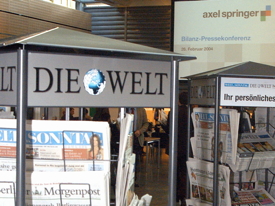 With the retirement of Rudolf Knepper on age grounds at the year’s end, Axel Springer will enlarge the number of its directors from four to five. On 1 January 2012, Jan Bayer and Ralph Büchi will join the Board. Bayer, chairman of publishing for regional and subsription newspapers (Welt Group / Berliner Morgenpost / Hamburger Abendblatt), will head subsription newspapers and printers. Büchi, President of Axel Springer International and CEO of Axel Springer Switzerland, is appointed International board member. IT management, as well as retiring vice-chairman Knepper’s Logistics & Services, go to “Bild” and magazines chief Andreas Wiele, while Lothar Lanz takes responsibility for personnel and purchasing.
With the retirement of Rudolf Knepper on age grounds at the year’s end, Axel Springer will enlarge the number of its directors from four to five. On 1 January 2012, Jan Bayer and Ralph Büchi will join the Board. Bayer, chairman of publishing for regional and subsription newspapers (Welt Group / Berliner Morgenpost / Hamburger Abendblatt), will head subsription newspapers and printers. Büchi, President of Axel Springer International and CEO of Axel Springer Switzerland, is appointed International board member. IT management, as well as retiring vice-chairman Knepper’s Logistics & Services, go to “Bild” and magazines chief Andreas Wiele, while Lothar Lanz takes responsibility for personnel and purchasing.
Clemens Börsig is giving up his post as Supervisory Board chairman after six years, after Josef Ackermann decided to take up the chairmanship. The outgoing CEO will resign from the Executive Board of Deutsche Bank with the end of the 2012 Annual General Meeting. Jürgen Fitschen and Anshu Jain will then take on the dual leadership of the bank at the end of May next year. Rainer Neske will also get a new contract as co-CEO.
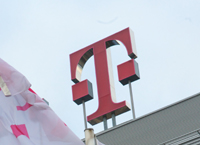 The appointment of Claudia Nemat and Marion Schick takes two women to the Board of Deutsche Telekom. The 42-year-old Nemat takes over the vacant Europe executive division from the beginning of October, while former Baden-Württemberg education minister Schick takes the Human Resources department in May 2012. She succeeds Thomas Sattelberger. In protest against the appointment of the former Württemberg Education Minister the employee side left the Supervisory Board meeting. On the appointment of the new board members Ulrich Lehner said: “In Ms. Schick and Ms. Nemat we have found two distinguished experts for the two departments. I am looking forward to working together.” The Compliance board member Manfred Balz is also to be replaced by a woman, but the appointment is delayed because of an existing employment relationship.
The appointment of Claudia Nemat and Marion Schick takes two women to the Board of Deutsche Telekom. The 42-year-old Nemat takes over the vacant Europe executive division from the beginning of October, while former Baden-Württemberg education minister Schick takes the Human Resources department in May 2012. She succeeds Thomas Sattelberger. In protest against the appointment of the former Württemberg Education Minister the employee side left the Supervisory Board meeting. On the appointment of the new board members Ulrich Lehner said: “In Ms. Schick and Ms. Nemat we have found two distinguished experts for the two departments. I am looking forward to working together.” The Compliance board member Manfred Balz is also to be replaced by a woman, but the appointment is delayed because of an existing employment relationship.
Uwe Flach was elected as the new chairman of the supervisory body of Deutsche Wohnen at the Supervisory Board meeting on 5 July. The former advisor to Oaktree Capital Group has been a member of the Supervisory Board since 2008. The current incumbent, Hermann Dambach, had already retired from office in late June. A prominent new addition to the Supervisory Board of the real-estate company is Wolfgang Clement .
Marc Brucherseifer is the new chairman of the Supervisory Board at Drillisch. As one of the founders, he was Chief Executive Officer up to 31 March 2005. Brucherseifer has been a member of the Supervisory Board since October 2007. He succeeds Hartmut Schenk, who has gone to the freenet Supervisory Board. The outgoing Supervisory Board chairman of the German mobile-service provider has been on the body since 2002 and its Chairman since 2003.
 METRO is to appoint Heiko Hutmacher as Chief Human Resources Officer and Labour Director, the trade group announced on 22 July. The Supervisory Board’s Personnel Committee had proposed the appointment of the Akzo Nobel Manager as from 1 October. The Board would thus be expanded to five members. The post has been a shared responsibility of Eckhard Cordes since the departure of Zygmunt Mierdorf in early 2010.
METRO is to appoint Heiko Hutmacher as Chief Human Resources Officer and Labour Director, the trade group announced on 22 July. The Supervisory Board’s Personnel Committee had proposed the appointment of the Akzo Nobel Manager as from 1 October. The Board would thus be expanded to five members. The post has been a shared responsibility of Eckhard Cordes since the departure of Zygmunt Mierdorf in early 2010.
For “personal reasons”, Thomas Richterich does not want to extend his contract with Nordex expiring on 30 June 2012, the wind-turbine manufacturer announced on 22 July. The Supervisory Board respected the decision, which enabled early transition planning. The Klatten family, majority shareholder at Nordex with nearly 24 percent, must now find a new CEO for the Hamburg company.
Wolfgang Werner has informed the Supervisory Board chairman that he is resigning, announced Praktiker on 20 July. The CEO will run the business provisionally until a successor is found. He headed the Board for almost ten years, first as spokesman and then as chairman. The troubled DIY chain had already replaced its chief financial officer last September.
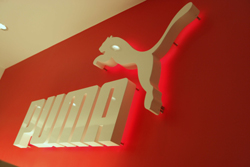 Franz Koch on 25 July officially took over the post of PUMA CEO Jochen Zeitz, who becomes Chairman of the PUMA Supervisory Board. The date of the change in the management team was tied to the registration of the new legal form of European Company (SE) in the commercial register. Melody Harris-Jensbach would henceforth no longer form part of the leadership. A successor would not be appointed.
Franz Koch on 25 July officially took over the post of PUMA CEO Jochen Zeitz, who becomes Chairman of the PUMA Supervisory Board. The date of the change in the management team was tied to the registration of the new legal form of European Company (SE) in the commercial register. Melody Harris-Jensbach would henceforth no longer form part of the leadership. A successor would not be appointed.
Joachim Trickl leaves QSC at the end of August in order to pursue new professional challenges. The Chief Operating Officer had come to the Cologne telecommunications providers only in February 2009, and was to facilitate the operational and sales development of the three business units Managed Services, Products and Wholesale. The heads of the business units will take on Trickl’s tasks from now until further notice.
On the Roth & Rau Supervisory Board to be newly elected on 26 August all three posts are in future to be occupied by Meyer Burger representatives, as the invitation to the Annual Meeting shows. One is Peter Maria Wagner, who if elected will take over as chairman of the committee. Other proposed members are Chief Financial Officer Michael Hirschi and attorney Andrea Sieber of law firm meyerlustenberger. The Swiss were advised on the acquisition of the Saxon solar company by, among others, the Zurich law firm. The former Supervisory Board around Chairman Eberhard Reiche, his deputy Prof. Alexander Michaelis and Daniel Schoch will retire. Meyer Burger now holds over 80 percent of Roth & Rau.
Angelika Dammann left SAP last month for personal reasons. The personnel manager had drawn the wrath of the Works Council on herself. Dammann’s job as personnel manager has been taken over for the moment by Chief Financial Officer Werner Brandt.
David Broadbent has left the Board of Software AG with immediate effect. The Chief Operating Officer was responsible for product sales in Europe (excluding the German-speaking countries), the Middle East and Africa. This task was taken over by Darren Roos, the former head of sales in Benelux and Scandinavia. This was announced by the Darmstadt firm in a press release dated 28 July.
SolarWorld has increased its board from four to five members against the backdrop of growth and the increasing internationalization of the group, and appointed the first woman to the Board. Colette Rückert-Hennen is in charge of staff and branding (Chief Human Resources and Brand Officer) from 1 July, announced the Bonn TecDax Group.
Campus
VW ahead on transparency
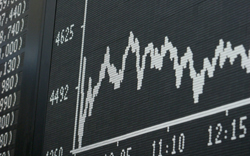 DAX-listed companies have to catch up in terms of transparency, criticizes a study by consultancy Klenk & Hoursch. The Frankfurt firm had interviewed 3000 consumers as to how transparent they perceive DAX-listed companies, both in product descriptions and on executive pay. Carmaker Volkswagen cut the best figure, with nearly 45 percent of respondents finding it transparent. Second place went to BMW, followed by Adidas. At the bottom end of the transparency rankings came energy providers RWE and E.on and insurance company Munich Re.
DAX-listed companies have to catch up in terms of transparency, criticizes a study by consultancy Klenk & Hoursch. The Frankfurt firm had interviewed 3000 consumers as to how transparent they perceive DAX-listed companies, both in product descriptions and on executive pay. Carmaker Volkswagen cut the best figure, with nearly 45 percent of respondents finding it transparent. Second place went to BMW, followed by Adidas. At the bottom end of the transparency rankings came energy providers RWE and E.on and insurance company Munich Re.
Financial statements faster
Companies have increased the speed of their reporting despite steadily rising requirements, but are no longer willing to trade speed against quality. According to a study by PwC, last year nearly one in two of 230 surveyed companies could provide a certified financial statement at an earlier stage than in 2009. Particularly fast companies achieved this after only 19 working days. In the two previous years a good 40 percent and 35 percent respectively of companies surveyed were able to shorten their time; at a good one in ten companies, reductions even of more than five working days were possible in 2009, as the latest “Reporting Survey” from the auditing and consulting company shows. Despite the time constraints, final quality has according to PwC priority for 65 percent of respondents, and 85 percent will seek a further increase in quality. Specifically, further standardizing (60 percent of responses), more integrated systems and interfaces (55 percent) and training at group companies (41 percent) will be pursued.
One in four balance-sheets faulty
In the first six months of this year, the German Financial Reporting Enforcement Panel (DPR) has again identified numerous errors in corporate balance-sheets. The error rate of 26 percent was average for recent years. The accounting watchdogs regard a lot of mistakes in the annual reports of German companies as inevitable, however, as companies are unable to cope with the ever more complicated rules. Most errors were due to the intricate accounting of acquisitions and disposals of firms. So far this year 22 companies have had to disclose accounting deficiencies, and last year it was 31. Behind one of the incorrect balance sheets, according to DPR, is even a DAX company. The process is not yet complete, so there is currently no disclosure. The previous year, Infineon and Merck were affected.
DSW in cooperation with university
 Shareholder association Deutsche Schutzvereinigung für Wertpapierbesitz e.V. (DSW) and the University of Bremen will jointly launch a hands-on programme in which they explain issues of investment advice and investment to students. “Interested students are to be given the opportunity, at shareholders’ meetings or at conferences and Action Forums which DSW regularly organizes nationwide, to participate,” says the CEO of DSW, Ulrich Hocker. The collaboration will also include special courses as well as the supervision of practice-oriented diploma and bachelor theses. Joint events by the DSW and the University of Bremen are planned for the years 2012/2013.
Shareholder association Deutsche Schutzvereinigung für Wertpapierbesitz e.V. (DSW) and the University of Bremen will jointly launch a hands-on programme in which they explain issues of investment advice and investment to students. “Interested students are to be given the opportunity, at shareholders’ meetings or at conferences and Action Forums which DSW regularly organizes nationwide, to participate,” says the CEO of DSW, Ulrich Hocker. The collaboration will also include special courses as well as the supervision of practice-oriented diploma and bachelor theses. Joint events by the DSW and the University of Bremen are planned for the years 2012/2013.
Capital News
LANXESS has announced a share buyback in order to issue shares to staff. The programme started on 12 July. By 22 July up to 140,000 own shares are to be purchased. This corresponds to about 0.2 percent of share capital and is expected to cost the MDAX-listed company almost eight million euros.
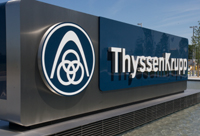 As ThyssenKrupp announced ad-hoc after market close on 6 July, own shares amounting to 9.6 percent of the share capital will be sold in order to reduce net financial debt for “strategic development”. The sale of 49,484,842 own shares has been rapidly translated into action. Institutional investors from home and abroad put around 1.63 billion euros on the table. CEO Hiesinger had also announced he wanted to reinvest several billion euros from the proceeds in future growth areas, especially in the technology business and emerging markets.
As ThyssenKrupp announced ad-hoc after market close on 6 July, own shares amounting to 9.6 percent of the share capital will be sold in order to reduce net financial debt for “strategic development”. The sale of 49,484,842 own shares has been rapidly translated into action. Institutional investors from home and abroad put around 1.63 billion euros on the table. CEO Hiesinger had also announced he wanted to reinvest several billion euros from the proceeds in future growth areas, especially in the technology business and emerging markets.
Director's Dealings
| Company | Person | Function | Buy / Sell | Total value in Euro | Number of shares | Datum |
| adidas | Christian Tourres | SB | S | 5.079.568 | 92.346 | 29.06.2011 |
| Allianz | Dr. Wulf Bernotat | SB | S | 97.460 | 1.000 | 04.07.2011 |
| Bilfinger Berger | Roland Koch | MB-Head | B | 49.837 | 730 | 01.07.2011 |
| Demag Cranes | Karlheinz Hornung | SB | S | 62.017 | 1.363 | 30.06.2011 |
| Drillisch | Dr. Hartmut Schenk | SB | B | 19.825 | 2.500 | 24.06.2011 |
| Fielmann | Hans Joachim Oltersdorf | SB | S | 459.000 | 6.000 | 01.07.2011 |
| GERRY WEBER | R + U Weber GmbH & Co. KG | B | 473.580 | 20.000 | 22.07.2011 | |
| Henkel | Christoph Henkel | S | 2.415.000 | 50.000 | 04.07.2011 | |
| Kabel Deutschland | Basil Management Inc. | S | 9.245.250 | 225.000 | 01.07.2011 | |
| KRONES | Leopold Kronseder | B | 11.857 | 215 | 27.06.2011 | |
| KRONES | Nora Kronseder | B | 11.857 | 215 | 27.06.2011 | |
| LEONI | Marcel Bellé | B | 5.153 | 130 | 04.07.2011 | |
| MERCK | Dr. Karl-Ludwig Kley | MB-Head | B | 100.082 | 1.350 | 27.07.2011 |
| MERCK | Dr. Stefan Oschmann | MB | B | 103.834 | 1.400 | 27.07.2011 |
| Phoenix Solar | Dr. Andreas Hänel | MB-Head | B | 13.885 | 1.000 | 20.07.2011 |
| QSC | John C. Baker | SB | Payment | 0 | 42.135 | 28.06.2011 |
| QSC | Baker Capital Partners II (Anguilla), LLC | Payment | 0 | 71.089 | 28.06.2011 | |
| SGL CARBON | SKion GmbH | B | 47.499.971 | 1.616.195 | 01.07.2011 | |
| SGL CARBON | Theodore H. Breyer | MB | S | 39.500 | 1.000 | 01.07.2011 |
| Süss MicroTec | Frank P. Averdung | MB-Head | B | 46.215 | 4.500 | 04.07.2011 |
| United Internet | Ralph Dommermuth Beteiligungen GmbH | S | 28.260.000 | 2.000.000 | 05.07.2011 |
VIPsight Shareholders
in July
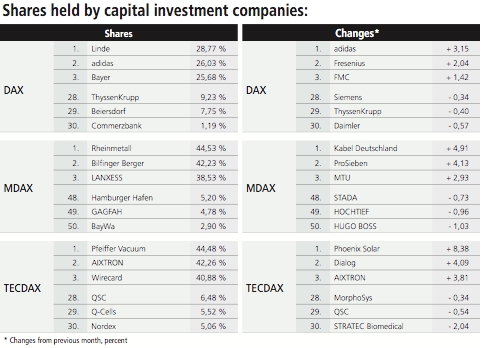
VIPsight Shareholder ID <click here>
Event Diary
24 August 2011 Fallstricke im Entwurf des Umwandlungssteuererlasses [Pitfalls in the design of the conversion tax decree]
Organizer: Haarmann Frühstück Steuern & Recht; place: Restaurant Opéra, Alte Oper, Frankfurt am Main; info:This email address is being protected from spambots. You need JavaScript enabled to view it.
Reading suggestions















